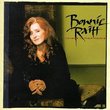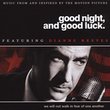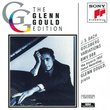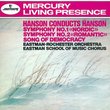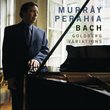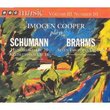| All Artists: Toscanini, NBC Symphony Orchestra Title: Sampler Members Wishing: 0 Total Copies: 0 Label: RCA Release Date: 6/6/1991 Genre: Classical Styles: Opera & Classical Vocal, Forms & Genres, Theatrical, Incidental & Program Music, Historical Periods, Classical (c.1770-1830) Number of Discs: 1 SwapaCD Credits: 1 UPC: 090266034024 |
Search - Toscanini, NBC Symphony Orchestra :: Sampler
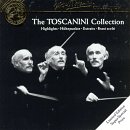 | Toscanini, NBC Symphony Orchestra Sampler Genre: Classical
|
Larger Image |
CD DetailsSimilarly Requested CDs
|
CD ReviewsThe Best of Toscanini Robert E. Nylund | Ft. Wayne, Indiana United States | 02/02/2006 (5 out of 5 stars) "If one has NEVER heard any of the recordings of Arturo Toscanini (1867-1957) with the NBC Symphony Orchestra, this is an excellent starting place.
First of all, it should be stated for those unfamiliar with Toscanini or the NBC Symphony Orchestra that this was an amazing story. David Sarnoff, the founder of RCA and NBC, wanted to have a first-rate symphony orchestra to broadcast on NBC radio and to make recordings for RCA Victor. Although Sarnoff wasn't a musician, he recognized that the Italian conductor Arturo Toscanini was probably the greatest conductor of his day. Toscanini had begun conducting in 1886, when he was 19, when he substituted on short notice to conduct a performance of Verdi's opera "Aida" by a touring Italian company in Rio de Janeiro, Brazil. Up until then Toscanini had been a gifted cellist and had assisted in rehearsing the chorus. When the scheduled conductor was fired, Toscanini ended up conducting the performance. He actually conducted the complete opera by memory and was a great success. This eventually led to additional conducting positions, with increasing success. Eventually he served as music director of La Scala in Milan, Italy; the Metropolitan Opera in New York City; and the New York Philharmonic Orchestra. Toscanini retired in 1936 from the Philharmonic. He continued to guest conduct and Sarnoff decided to build an orchestra specially for Toscanini. Fortunately, Toscanini agreed to Sarnoff's proposal and the NBC Symphony Orchestra rehearsed and performed under several conductors before Toscanini arrived to conduct a broadcast concert on Christmas night, 1937. The broadcasts and recordings continued until the spring of 1954, when Toscanini finally retired at the age of 87. He died on January 16, 1957, in New York City. This disc includes recordings made by Toscanini and the NBC Symphony Orchestra from 1939 to 1953. They are well-chosen and give a good idea of Toscanini's versatility and his considerable musical abilities. Beethoven's "Leonore Overture No. 3" is taken from an NBC broadcast concert in 1939 in Studio 8-H, which was the primary home of the NBC Symphony from 1937 to 1950. (Later NBC broadcasts originated exclusively from Carnegie Hall. Studio 8-H today is used for telecasts including "Saturday Night Live.") This is an astonishing performance, played with great feeling and considerable animation. The incredible drive that was a trademark of Toscanini's conducting can be realized in this performance, which surpasses the rendition during the 1944 broadcast performances of the complete opera "Fidelio." (Beethoven composed FOUR overtures for his only opera. The final overture he composed is usually played at the beginning and the third version, included on this disc, is often played between the first and second acts.) Toscanini knew the Italian operatic composer Verdi and he had a special fondness for the chorus "Va, Pensiero," from Verdi's early opera "Nabucco." Toscanini conducted this same music at the funeral for Verdi in January 1901 and it was played at Toscanini's own funeral in January 1957. This is very patriotic, deeply moving music and, in Toscanini's hands, it is especially moving. Bedrich Smetana's "The Moldau" is from a set of six symphonic poems called "My Fatherland." Toscanini's amazing 1950 recording in Studio 8-H is absolutely sensational. He succeeds in capturing the various moods of the Moldau River as it winds through the Bohemian countryside. It is a very spectacular and delightful performance. Toscanini recognized the special magic of the "Queen Mab" scherzo in Hector Berlioz's telling of Shakespeare's "Romeo and Juliet." The renowned string section of the NBC Symphony is particularly impressive in playing this delicate, mysterious, and precise music. Brahms' "Academic Festival Overture" is played with great precision and brilliance in this performance from an NBC broadcast concert in Studio 8-H in 1948. The listener can enjoy the various German university songs that Brahms quoted in this wonderful music; seldom have they been performed with such enthusiasm and intensity. "The Ride of the Valkyries" may be the most famous piece of music composed by Richard Wagner. Toscanini succeeded in giving this thrilling music the most spectacular performance in his 1952 recording session in Carnegie Hall. In 1946, Toscanini observed the 50th anniversary of the world premiere of Puccini's "La Boheme" with a complete performance of the work over the NBC radio network. (Toscanini had actually conducted the world premiere in 1896.) Soprano Licia Albanese and tenor Jan Peerce were among the featured singers and they are heard, along with Toscanini's humming, in the finale to Act I, "O Soave Fanciulla." This music has seldom been performed with more feeling. Finally, there is the delightful 1953 recording of Rossini's overture to his final opera, "William Tell." This represents the highest fidelity achieved in Toscanini's RCA Victor recordings and it is one of his best performances. No matter how familiar one may be with this music, this is a stellar performance. The storm and the chase were seldom played with more energy and enthusiasm. RCA first released digitally remastered versions of Toscanini's recordings in 1990, drawing from the original masters whenever possible. Ten years later, further refinements in the digital process led to even better versions of these legendary recordings. All in all, these CDs have helped to preserve the legacy of Toscanini's numerous recordings, from 1920 to 1954." |

 Track Listings (8) - Disc #1
Track Listings (8) - Disc #1